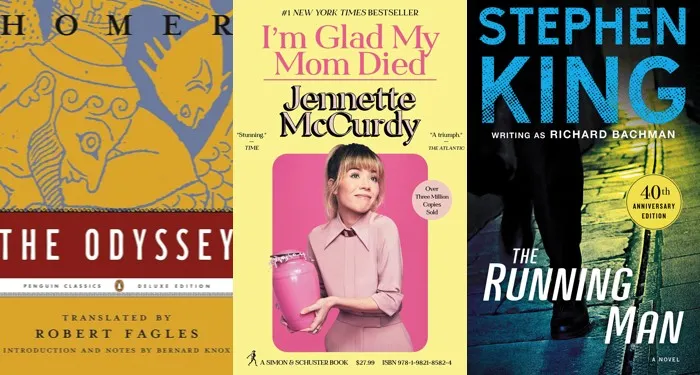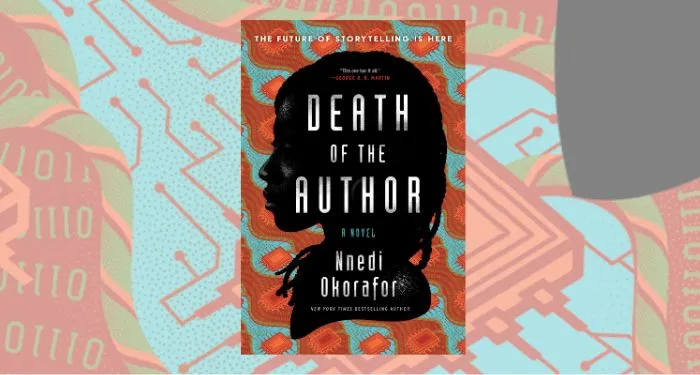For Authors
If you’ve ever felt the weight of keeping your book series consistent, coherent, and compelling over multiple installments, you’re not alone. In fact, the challenges faced by authors of interconnected novels aren’t so different from those tackled by Hollywood studios trying to build a cinematic universe. That’s why this week’s blog dives into the ambitious plans of James Gunn, the new creative force behind the DC Universe, and what self-published authors like us can learn from the way he’s rebuilding a broken franchise into something fresh, focused, and full of promise.
By comparing Gunn’s methodical, long-term vision for the DCU to the very real struggles of writing his own expansive romance series, Ginger explores how to balance plot, character, and worldbuilding across a sprawling narrative. Whether you’re just starting your first series or wrestling with the weight of a dozen interwoven books, there’s inspiration to be found in how Gunn juggles flexibility with structure, individual voices with shared canon, and short-term storytelling with long-term payoffs.
In last week’s article, I explored some of the really powerful writing that James Gunn had employed to breath new life into the superhero genre and give birth to the new DC Universe. I focused on the writing of the first film in this new ‘verse, but it led into researching the longer-term plans Gunn has for the DC Universe, and how he’s already mapped out the first phase, titled “Gods and Monsters.”
I am a huge fan of sprawling, interconnected “universes”, and not just in cinema (although I’m a big Marvel fan) but also in literature. Two of my biggest writing inspirations are Jilly Cooper and Fiona Walker—pioneers of the “chicklit” genre—and one of the things I love about their books is how they each have a coherent and interconnected cast of characters (and animals) existing in each of their fictional towns and villages, and many of them make appearances in other books.
It’s an incredibly satisfying way to explore an author’s writing. You get rewarded with each new book in the series, exploring more of the world these characters live in, and giving the whole series a delightful sense of familiarity.
It’s an approach I wanted to embrace when I started my MC Romance series about The Knuckleheads—a vigilante biker gang roaming the American west. (Fiona Walker might be surprised to learn that her cozy Cotswolds romances inspired my gritty and explicit romantic suspense novels!)
However, 12-books in, I’ve learned that there’s more to keeping a universe together than I might have anticipated, and I’ll admit it’s been a while since I published my most recent book in this series. Part of the reason for this is the complicated situation I’ve written myself into, with all the couples from a dozen books now convening in Las Vegas for what I’d hoped would be the “Endgame” of my biker series.
I have a plan for how this phase of my story arc will wind up—but it’s quite complicated to get all my couples positioned correctly for that to happen, and I’ve found myself in the worst situation for a writer to be in—tempted to make my characters do things for the sake of a larger “plot” than because it’s what they’d do naturally and organically.
Can you relate? Have you ever stared at a series of books you’ve started, wondering how to keep the overall series arc from spiraling into a mess of loose ends? I know I’m not alone. In fact, I’d argue that this was the problem that led to the eventual cancellation of the DCEU (the DC Expanded Universe) which had brought the Justice League to the silver screen for the first time.
Aquaman and the Lost Kingdom was the last film in the DCEU, and now James Gunn has come in as the mastermind behind a brand-new DC Universe (DCU) which will replace it.
As I said in my last article, it’s a huge responsibility Gunn has accepted the burden of. He must now reinvent a failed franchise, generating a sprawling saga of interconnected movies and TV shows that will hopefully succeed where the previous DCEU failed (and where Marvel is currently stumbling.)
But if Superman was anything to go by, James Gunn is the right man for the job. And as self-published authors, I think we can learn a ton from how Gunn is planning to steer this ship. He’s pledged to balance a unified studio plan while providing creative freedom for individual writers and directors, all while avoiding the pitfalls that tanked the old DC Extended Universe. I think for those of us who write interconnected books, there’s a lot we can learn from Gunn about how to keep our own series’ on track.
So, let’s dive into his approach and see if we can mine some wisdom for our own epic series.
James Gunn’s Rise to DCU Mastermind
If you’re a Marvel fan, the name James Gunn will be familiar to you. He’s the creative talent behind the three Guardians of the Galaxy movies, which are widely considered some of the best in the sprawling franchise.
After being temporarily fired from Marvel when some offensive Tweets resurfaced, Gunn switched teams and created The Suicide Squad for Warner Brothers. Set in the DC universe and using several key characters (and the actors who played them) from the original DCEU, this movie demonstrated James Gunn’s knack for blending heart, humor, and chaos. And more importantly, it led to him being tapped to become the new co-CEO of DC Studios in November 2022 (alongside long-time collaborator and friend Peter Safran.)
When Gunn took over, the DCEU was a mess—with films like Joss Whedon’s Justice League delivering a tonal whiplash to the darker films that preceded it, and The Flash becoming a $330 million box office flop in 2023.
Warner Brother’s CEO David Zaslav brought Gunn on board because he needed a reset to the DCEU, with the plan of one-day rivaling Marvel’s ongoing Cinematic Universe (MCU). Gunn, as a Marvel veteran with his proven track record, was the guy to do it.
Tasked with crafting an eight-to-ten-year plan, Gunn kicked off the new “DCU” with Creature Commandos (2024) and Superman (2025), starring David Corenswet as a new Man of Steel, replacing Henry Cavill. These were the foundations for a cohesive new universe.
But how did Gunn plan to bring it to life?
The Writers’ Room: Trusting the Team
As writers, we’re usually the only people involved in bringing our book series to life. James Gunn doesn’t have that luxury. As Superman and Guardians of the Galaxy have proven, he’s a phenomenal writer, but he’s also only one man, and a busy new CEO at that!
So, Gunn won’t be penning every new DCU script himself. He’s got a team, including comic book veteran Tom King and writers like Christal Henry (who wrote the Watchmen TV series) and Jeremy Carver (who wrote Doom Patrol) to bring his vision to life. Some members of this team, like those who wrote Peacemaker Season 2, carry over from Gunn’s earlier DC projects. However, others are fresh faces, chosen for their ability to execute his blueprint.
For example, Horror writer Mike Flanagan, who wrote Doctor Sleep and The Fall of the House of Usher, will be writing the planned Clayface movie, slated for release in 2026. Chris Mundy, the man behind Ozark and True Detective, will be bringing his showrunning experience to the planned Lanterns series.
Gunn has chosen writers who are familiar with different storytelling formats and trusts them to deliver on his vision for the DCU, even if they’re not inventing the story from scratch.
Most of us self-published writers aren’t familiar with writing other people’s stories. We usually got into this business because we wanted to tell our own stories about our own characters.
But when you’re playing in the DC sandbox with Warner Brother’s money, you don’t have that luxury. You have the challenge of taking existing characters and existing stories and somehow making them work. A working writer’s job isn’t always to dream up the story, it’s more often to make someone else’s vision sing.
But there’s a lot of opportunity in that. It reminds me of advertising legend David Ogilvy, who once said: “Give me the freedom of the tight brief.” There’s actually a lot of freedom involved in writing about pre-existing characters in a pre-existing universe. As one friend of mine said: “Working for James Gunn must be like writing fan fiction, but getting paid for it!”
And I think there’s a certain amount of truth to that.
In fact, it gets even better when you learn that while James Gunn’s team works from a “bible” for the DCU—ensuring every project fits the bigger picture and remains coherent—yet he’s been adamant that “every single project… is going to be its own thing” with its own “stamp.”
This is very different to the approach that Marvel takes, using a uniform tone and voice for their movies. Unlike Marvel’s quippy, uniform tone (think Tony Stark’s snark in Iron Man and Ant Man’s self-deprecating humor), Gunn encourages his writers to use their own voice.
Superman’s bright and hopeful vibe, for example, will differ sharply from Clayface’s planned R-rated body horror, yet they’re both linked by shared canon. Gunn’s also clear that canon isn’t inviolable. In an interview with Scott Collura, he said canon was flexible because: “None of this is real! It’s all just stories that we’re telling about characters.”
This is why standalone “Elseworlds” projects like Matt Reeves’ The Batman Part II are still slated for release, despite them featuring versions of DC characters that exist outside the main DCU.
There’s flexibility, but there’s also a plan, and I think that’s something very important for us writers to pay attention to.
The DCEU’s Cautionary Tale
The original DCEU’s collapse is practically a masterclass in what not to do with a series. It started strong with Man of Steel in 2013, but rushed into Batman v Superman—cramming in Wonder Woman, Lex Luthor, and Doomsday without setting those characters up in their own movies like Marvel had been doing with their own roster of superheroes.
The result? A disjointed universe in which Suicide Squad’s camp clashed with Wonder Woman’s gravitas, and Justice League’s reshoots by Joss Whedon made Synder’s original vision wind up more like a Marvel knockoff.
By 2023, Aquaman and the Lost Kingdom fizzled with $439 million at the box office against a $200 million budget, and once you factor in advertising and marketing, that was enough for the accounts at Warner Brothers to officially declare the DCEU was dead.
It was disappointing for everybody, and the lack of a unified plan meant that the cancellation left plot threads (like Ben Affleck’s Batman arc) dangling, which is perhaps why some die-hard fans are still pleading with Warner Brothers to “restore the Synderverse.”
And despite inventing the genre, Marvel isn’t immune from this problem. Despite a triumphant first decade, culminating in Endgame, Marvel’s Phase Four failed to keep that magic going.
Deadpool himself called it a “low point” in the franchise history when he joined the MCU in Deadpool & Wolverine in 2024, and he’s not wrong!
Post-credit scenes in Eternals and Doctor Strange in the Multiverse of Madness teased villains like Arishem and Clea joining the MCU, but shifting plans and behind-the-scenes drama forced Marvel to change direction, and that left those threads hanging.
Without a clear roadmap, like they’d had leading up to Endgame, Marvel’s universe started to feel aimless, demonstrating that even cinematic superheroes can stumble without narrative discipline.
Over a year since publishing my last Knuckleheads book, I can sympathize with this dilemma.
Lessons for Series Authors
But I think James Gunn’s plans for the new DCU could be a goldmine of inspiration for us series writers. It’s especially valuable because many of us are “discovery writers” who let stories unfold as we write them (they used to call us pantsters.)
Now, I’ll always defend writing by the seat of your pants, but I do know how this approach can lead writers into inescapable plot holes and abandoned sequels. When you’re planning a series, this could literally kill your chances at financial success as a writer, because readers today are wary; many won’t touch an incomplete series, fearing it’ll fizzle out before completion like an unrenewed Netflix show.
James Gunn’s disciplined yet flexible approach to the new DCU is a good roadmap for keeping our own series on track. Here’s how to emulate it:
- Craft a series bible: The best time to outline your world, characters, and major arcs is before writing a single word of Book One. The second-best time is right now (for me, 12 books in.) Sketching out some key themes and endpoints, like Gunn’s “Gods and Monsters” framework, helps your series keep moving in the same direction, even if individual books weave unexpectedly as you write them.
- Plan with flexibility: Your series outline provides a destination but leave room for detours, which means you can tweak subplots without breaking the story, like adjusting a romance arc to fit a new character. Just update your outline so you don’t end up contradicting yourself in future books.
- Define your tone, but don’t be afraid to vary it: While authors should always respect the reader expectations of your genre (for example, all my MC romance books require a Happily Ever After or at least a Happy For Now ending) each book in your series can have its own flavor. James Gunn’s Superman film is hopeful. The planned Clayface movie will be dark. Both, however, will feel cohesive together. By identifying the key themes in your series outline, you can achieve the same in your own individual books.
- World-Build Through Characters: The opportunity of an interconnected series of books is that you can introduce side characters to flesh out your universe in one book (like Gunn did with Hawkgirl and Mister Terrific in Superman) and then expand their stories even further by giving them their own book a little later in the series. Your series outline will help identify which characters get to tell their own stories, and where they’ll fall in the series.
- Collaborate for Feedback: While individual writers will be given the freedom to pen their own scripts, James Gunn helps develop the larger threads and concepts through writer circles and collaboration. If you have a community of beta readers or existing fans, you can feel out the larger story arcs with them to see if they feel they fit within the framework of your existing series.
- Tie Up Loose Ends: This one’s important! You should plan resolutions for every major story thread, and keep track of new ones that pop up when your characters do the unexpected (as those of us who are discovery writers know they often do!) One of the major current frustrations with Marvel, for example, are all the post-credit sequences that now look like they’ll never be carried through to completion.
- Stay Disciplined: James Gunn has an eight-year plan for his DCU, and if you’re planning a series, you should set similar deadlines for each book release to avoid abandoning your saga. However, this is easier said than done (as the months and months since my last book release demonstrates.) Gunn has millions of dollars and the shareholders of Warner Brothers motivating him. You’ll have to find your own forms of motivation to keep on writing and publishing.
- Engage Your Readers: Here comes the fun part. If you can commit to a series of books, you can start to have fun with them, just like Marvel does with their signature post-credit sequences. You can do the same! You can tease future books with epilogues or bonus content, like Gunn’s post-credit scenes at the end of Superman. It’s one of the most satisfying things to do as an author with a wider vision for your characters.
Keep Your Series Flying
The decision to hire James Gunn suggests that Warner Brothers have realized that crafting a cinematic universe needs a plan, but it doesn’t need to be a straitjacket. My own stalled series demonstrates that there’s a benefit to planning things out ahead of time, even if you consider yourself a “discovery writer.”
So, whether you’ve yet to put pen to paper, or you’re stuck on Book 13 like I am, grab your notebook and sketch the path you want your series to take. Your readers are out there, but they’re waiting for a saga that sticks the landing, not stumbles and get cuts short. Mirroring some of Gunn’s strategy could help you deliver.
Or, at least, that’s what I think. What’s your own approach to planning or writing a series? Do you have any suggestions you’d like to share? Drop them in the comments, I can’t wait to read them!
Share this blog
About the Author

Ginger is also known as Roland Hulme - a digital Don Draper with a Hemingway complex. Under a penname, he's sold 65,000+ copies of his romance novels, and reached more than 320,000 readers through Kindle Unlimited - using his background in marketing, advertising, and social media to reach an ever-expanding audience.



















 English (US) ·
English (US) ·